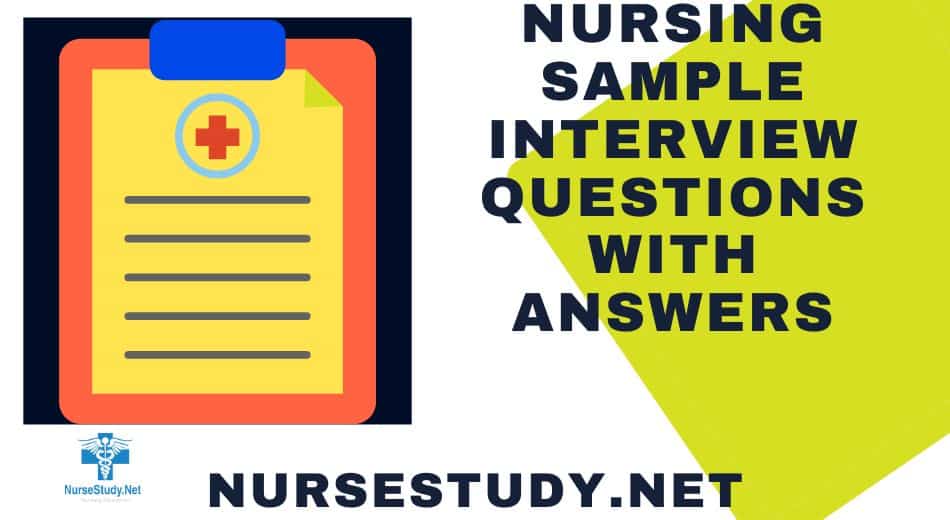Preparing for a nursing interview requires understanding both clinical competence and professional behavior. This comprehensive guide covers the most common nursing interview questions and provides expert-backed answers to help you succeed in your next healthcare interview.
Essential Nursing Interview Questions and Expert Answers
1. Why Did You Choose Nursing as a Career?
Strong Answer: “My decision to pursue nursing stems from combining my passion for healthcare with my desire to directly impact patient outcomes. During my volunteer experience at Memorial Hospital, I witnessed how nurses serve as the backbone of patient care, providing both clinical expertise and emotional support. This aligns perfectly with my core values of compassion and continuous learning.”
Why This Works: This answer demonstrates genuine motivation, includes personal experience, and shows an understanding of nursing’s core values.
2. How Do You Handle Stressful Situations?
Strong Answer: “I utilize a systematic approach to manage stress. First, I quickly assess the situation’s priority level. For instance, when facing multiple competing demands, I use the ABC (Airway, Breathing, Circulation) assessment method to prioritize patient needs. I also maintain clear communication with my team and practice self-care techniques like deep breathing between tasks. During my clinical rotations, this approach helped me successfully manage a code blue situation while maintaining composure.”
Why This Works: The answer provides a specific methodology and real-world application, showing both theoretical knowledge and practical experience.
3. Describe a Challenging Patient Situation and How You Handled It
Strong Answer: “I once cared for a non-compliant diabetic patient who repeatedly refused blood sugar checks. Instead of becoming frustrated, I took time to understand their fears and concerns. I discovered they had previous traumatic experiences with needles. By explaining the procedure thoroughly, offering alternative testing sites, and using the smallest gauge lancet available, I gained their trust and compliance. This experience taught me the importance of patient education and empathy in care delivery.”
Why This Works: This response demonstrates problem-solving skills, patient-centered care, and learning from experience.
4. How Do You Stay Current with Nursing Practice?
Strong Answer: “I maintain my clinical knowledge through multiple channels. I’m an active member of the American Nurses Association and regularly participate in continuing education courses. I subscribe to nursing journals like the Journal of Nursing Education and attend monthly unit-based learning sessions. Recently, I completed a certification in wound care to expand my expertise.”
Why This Works: Shows commitment to professional development and specific examples of continuing education.
Advanced Clinical Scenario Questions
5. How Would You Handle a Medication Error?
Strong Answer: “If I discovered a medication error, my immediate priority would be patient safety. I would:
- Assess the patient for adverse reactions
- Notify the charge nurse and physician immediately
- Document the incident thoroughly
- Implement necessary interventions
- Participate in root cause analysis to prevent future errors
During my clinical practice, I once caught a potential medication error during cross-verification, demonstrating the importance of following proper protocols.”
6. Describe Your Experience with Electronic Health Records (EHR)
Strong Answer: “I’m proficient in several EHR systems, including Epic and Cerner. I understand the importance of accurate documentation for both patient care and legal purposes. In my previous role, I helped train staff on our new EHR system, focusing on efficient charting while maintaining patient interaction.”
Leadership and Team Collaboration
7. How Do You Handle Conflict with Colleagues?
Strong Answer: “I believe in addressing conflicts professionally and directly. When I experienced a disagreement with a colleague over patient care priorities, I:
- Requested a private conversation
- Listened to their perspective
- I shared my concerns based on evidence
- Worked together to develop a solution
- Documented our agreed-upon plan
This approach maintained professional relationships while ensuring optimal patient care.”
Tips for Interview Success
- Research the healthcare facility beforehand
- Prepare specific examples from your nursing experience
- Dress professionally and arrive early
- Bring copies of your license, certifications, and resume
- Practice common scenarios with a colleague
Conclusion
Success in nursing interviews comes from combining clinical knowledge with strong communication skills. Focus on demonstrating your expertise while showing a genuine passion for patient care. Remember, healthcare employers seek nurses who can provide excellent clinical care while contributing positively to the team environment.
References
- Ackley, B. J., Ladwig, G. B., Makic, M. B., Martinez-Kratz, M. R., & Zanotti, M. (2023). Nursing diagnoses handbook: An evidence-based guide to planning care. St. Louis, MO: Elsevier.
- Harding, M. M., Kwong, J., & Hagler, D. (2022). Lewis’s Medical-Surgical Nursing: Assessment and Management of Clinical Problems, Single Volume. Elsevier.
- Herdman, T. H., Kamitsuru, S., & Lopes, C. (2024). NANDA International Nursing Diagnoses – Definitions and Classification, 2024-2026.
- Hoffman E. [Seminar on nursing administration. ABC’s of nurse recruitment]. Taehan Kanho. 1988 Oct 30;27(4):27-9. Korean. PMID: 3204974.
- Hospital best practices in nurse recruitment and retention. Nurs Econ. 1989 Mar-Apr;7(2):98-106. PMID: 2716871.
- Ignatavicius, D. D., Rebar, C., & Heimgartner, N. M. (2023). Medical-Surgical Nursing: Concepts for Clinical Judgment and Collaborative Care. Elsevier.
- Preston NJ, Farquhar MC, Walshe CE, Stevinson C, Ewing G, Calman LA, Burden S, Brown Wilson C, Hopkinson JB, Todd C. Strategies designed to help healthcare professionals to recruit participants to research studies. Cochrane Database Syst Rev. 2016 Feb 29;2(2):MR000036. doi: 10.1002/14651858.MR000036.pub2. PMID: 35658160; PMCID: PMC8190980.
- Silvestri, L. A. (2023). Saunders comprehensive review for the NCLEX-RN examination. St. Louis, MO: Elsevier.
